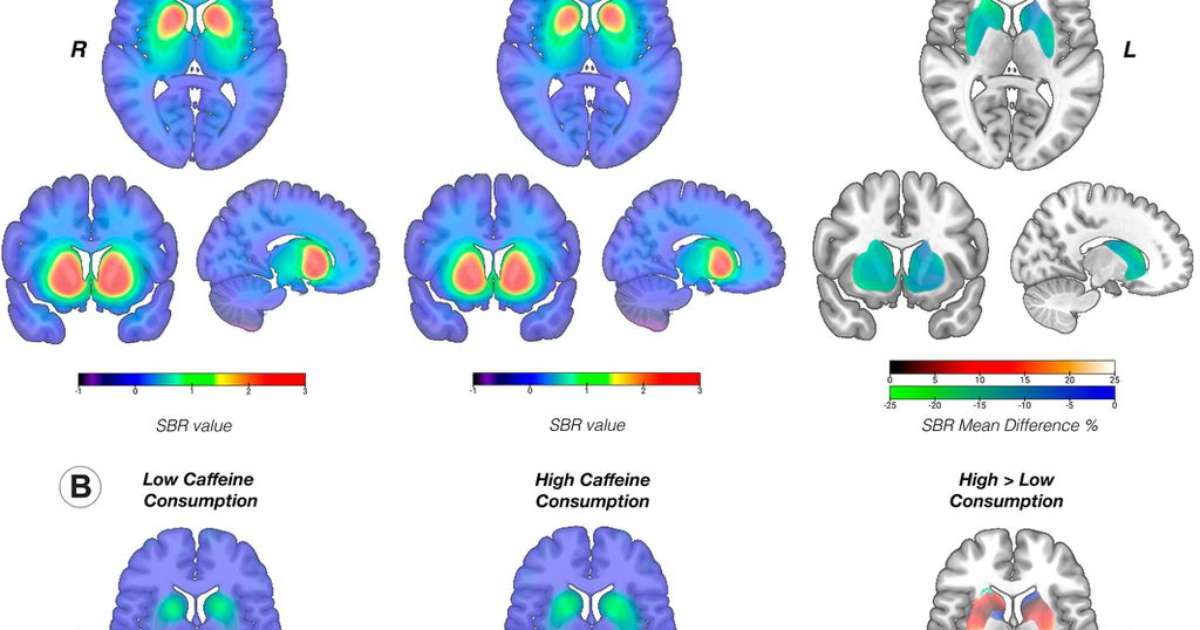Study finds that Parkinson's patients who consume large amounts of caffeine experience a 15.4% reduction in dopamine transporter binding.
May 31
2024
– 7:54 pm
(Updated at 8:06 p.m.)
Although it has already provided many Benefits for the brainCaffeine can also have negative effects. In a study from the University of Turku, it was found that coffee consumption affects dopamine in the brains of Parkinson's patients. To obtain this information, Finnish researchers analyzed 163 patients.
The study group compared blood and imaging tests of these 163 patients with 40 samples from healthy people, and also found a relationship between changes in the dopamine transporter in the brain and caffeine consumption.
The results revealed that Parkinson's patients who reported a high caffeine intake had a 15.4% reduction in dopamine transporter binding, compared to those with a typically low caffeine intake.
Neuroscientists hypothesize that this result comes from a compensatory downregulation mechanism in the brain that has also been observed in healthy individuals after caffeine use.
Coffee does not improve Parkinson's disease symptoms
Caffeine has already been considered a kind of ally for patients suffering from neurodegenerative diseases. A group from the Federal University of Lavras (UFLA), for example, has already pointed this out Coffee leaves can help treat Parkinson's disease.
At that time there were two types (Arabic coffee that it Canephora coffeeIt showed enzymes linked to the production of a compound called levodopa (L-DOPA), which can be used against the disease.
However, caffeine does not cause changes in Parkinson's disease symptoms, as reported in this new study:
“Although caffeine may offer certain benefits in reducing the risk of Parkinson's disease, our study suggests that high caffeine intake has no benefit on dopamine systems in patients who have already been diagnosed,” says research author Professor Valtteri Kassinen.
The researcher adds: “Consuming large amounts of caffeine did not lead to a decrease in symptoms of the disease, such as improving motor function.”
Dopamine in the brain
Dopamine is one of Neurotransmitters, associated with feelings of pleasure, reward and motivation. It is released mainly in an area of the brain called the ventral tegmental area, in response to pleasurable stimuli such as food and exercise.
When dopamine is released, it activates specific receptors in different areas of the brain, affecting functions such as mood, attention, learning, behavior, and motor control.
On the other hand, dopamine imbalances are linked to conditions such as schizophrenia, depression, and – as we can see from this study, Parkinson's disease.
source: Annals of Neuroscience, University of Turku
Popular on Canaltech:

“Wannabe internet buff. Future teen idol. Hardcore zombie guru. Gamer. Avid creator. Entrepreneur. Bacon ninja.”



